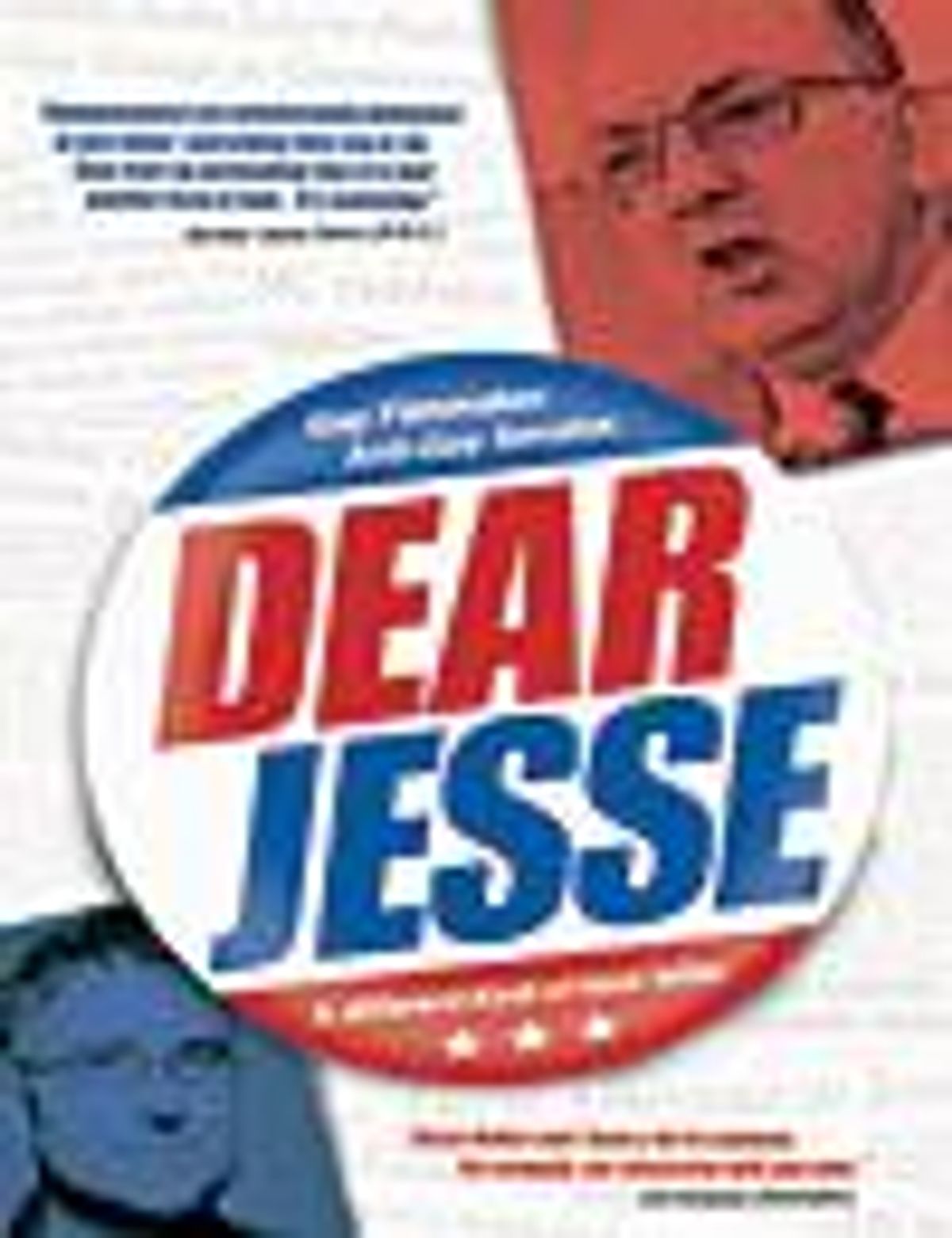Almost a decade
has passed since Tim Kirkman filmed his Emmy-nominated
documentary Dear Jesse, yet the piece retains
its significance as one of the first accounts of the
divisive rhetoric that has come to characterize
American politics. This short film is a first-person
compare-and-contrast between the gay filmmaker and the
notoriously conservative Jesse Helms, who served five
terms as a Republican senator from North
Carolina. Kirkman, who grew up in a similar
environment, seeks to understand what motivates decent,
"God-fearing" people to practice the politics
of hate.
In 1972, Helms
became the first Republican to represent North Carolina in
the U.S. Senate since the 19th century. His conservative
politics quickly earned him the moniker
"Senator No" -- that is, no affirmative
action, no abortion, no gay rights. Despite his
tendency toward intolerance, Helms would become the
longest-serving popularly elected U.S. senator in his
state's history.
Yet it would be a
mistake to characterize North Carolina as a state other
than one built on "churches and banks," says
local theater director Steve Umberger. His production
of Angels in America, a play sympathetic to
gays and people with AIDS, met with firm disapproval from
conservative Carolinians. And the state was and still
is very much composed of middle-class Americans who
respect Helms for his consistent -- albeit bigoted --
rhetoric.
Although times
have changed -- the 1998 film was produced before same-sex
marriage was legalized in Massachusetts -- Kirkman shows us
that we are still a nation deeply divided over issues
of moral "right" and "wrong."
And he points to the toll that this division can take on the
American public.
The movie
concludes with a short clip of Matthew Shepard, interviewed
with his boyfriend at Catawba College in North
Carolina two years before his tragic death. Not
included in the original documentary, the 1998 tape
included the footage as a reminder that a lack of tolerance
can breed violence. "This is the only footage I
have of Matthew," Kirkman comments on the film.
"It's not fair. It isn't enough." And it isn't
enough to encompass the vitality of the young man. But it
does serve to emphasize the necessity for
understanding -- on both sides of the divide.

















































































